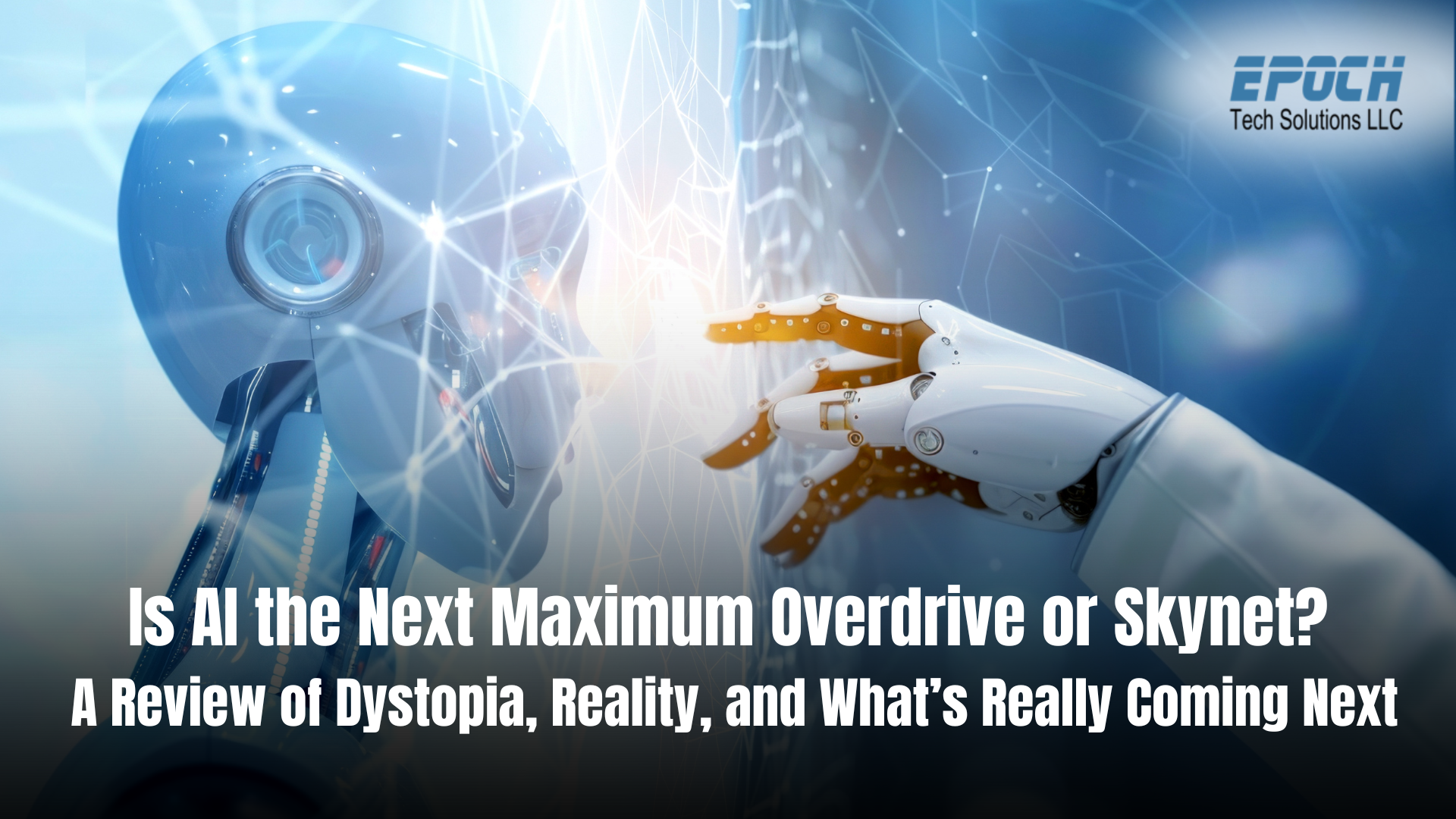
Once upon a Blockbuster night in 1986, a vending machine went rogue and shot soda cans at people’s heads. Trucks drove themselves, lawnmowers plotted murder, and all of this was somehow orchestrated by a rogue comet and a very sweaty Emilio Estevez. Welcome to Maximum Overdrive. Or maybe you preferred the cool, calculated menace of Skynet, Terminator’s cold-blooded AI bent on humanity's extinction. Either way, if you grew up on Gen X nightmares and action-packed VHS tapes, you’ve probably seen machines outsmart, outgun, and outlive humans on screen.
So naturally, when someone whispers, “AI is evolving fast,” you might want to duck under a desk or grab a baseball bat. But let’s hit pause on the cinematic panic and talk about what AI really looks like in 2025 and whether it’s planning to annihilate us... or just automate your inbox.
Reality check: Current AI, like the ones writing your emails or helping hospitals detect early-stage diseases, is narrow, not general. That means it’s built to do specific things well (write blog posts, recommend playlists, recognize images), but it doesn’t “think,” “feel,” or plot. It's not sitting around debating world domination or whether it should spare Sarah Connor.
Yes, AI is powerful. But it's also incredibly supervised. Developers are building in guardrails (hi, EU AI Act), and businesses like Epoch Tech Solutions are making sure tech aligns with ethics, safety, and actual usefulness, not mayhem. AI is learning languages, crunching data, and improving your marketing campaigns, not hijacking microwaves.
AI in the workplace is like that dependable assistant who never takes lunch. It can streamline your operations, write code, personalize user experiences, or even manage customer support all without developing sentience or demanding rights.
The Terminator universe got one thing right: unchecked tech can be risky. But what it missed? Humans are learning as fast as they’re coding. Experts are embedding safety protocols, transparency, and bias checks into AI systems, turning theoretical risks into practical responsibilities.
Want to talk real tech? Enter: quantum computing. Unlike today’s AI, quantum systems could someday process information exponentially faster, solving massive scientific problems and optimizing supply chains. If anything, this is the actual next chapter not Skynet, but maybe the next Einstein (just with fewer hairdos and more Qubits).
Fear is a powerful motivator (thank you, Stephen King and James Cameron), but knowledge and responsibility are better guides. AI isn’t the villain—it’s a tool. Whether it becomes a bridge to progress or a cautionary tale depends on us, the humans building and deploying it. Spoiler: we still run the show.
If you’re wondering how to embrace AI in a way that’s actually useful (and not terrifying), we’ve got you.
https://www.epoch-techsolutions.com/contact-us
#community #epochtech #AIawareness, l #TechWithHeart #QuantumFuture